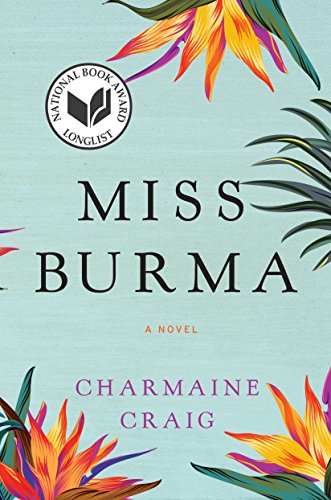In November, we offered the choice of books written by native authors from Myanmar, Laos, & Cambodia. This month, we’re focusing on refugees & the diaspora from these countries. With the holidays, we’ll also be extending out the discussion so that it occurs beginning January 15 to give a little extra time to read.
But before we get to the vote, here’s a powerful poem from a Cambodian American poet who is included in our list this month—Monica Sok.
“There’s a sister who works so hard she never talks.
A sister who screams when she hears dogs bark.
A sister whose breasts have grown dry. A sister who always hides.
There’s a time comrades come to the hut.
They can’t tell who’s who―How many are you?
Where’s the other one hiding? That sister stays close,
somewhere in a hole, closed off with dirt.
Sometimes she sits with the sister whose baby lacked milk.
In her place of hiding, she cries, thinks of comforting words
but her mouth goes dry. In a far village,
where works the sister who never talks: the sunset.
Finally, it’s her chance. Time to run back,
but this time an owl screeches. She closes her eyes.
She disappears, pretends she’s the one who can fly.
That sister so quiet. How does that sister stay quiet?
Biting her lips she goes into hiding: between her teeth,
the skin of a snake, hiding like a chasm in a field, a hole
in the door to spy on the time, dark knot
high up in a greasy tree, little dry well in a forgotten yard
where sounds of smoke and fighting drive close.
One sister soils her sarong. To wash it, the sisters search for water
but find full of air, a balloon which swollen in the river
makes the youngest scream and cry, she who holds hands
walking around the open eyes, her own face hiding.
Then the sister who never speaks, begins to speak.
I want to go home, she says. But home is not close at all.
No salty plum juice, no rice, or fish dried.
That dream is dry. And tracing with a stick,
a sister who closes a circle around them in the dirt,
hiding them safely inside―This is a circle,
a time warp around us sisters, so we can go back
to when we girls were not hiding, when fear didn’t dry us up,
and we could be whoever we were, dear sisters.
”
THE VOTING
You can vote from now until Tues., Dec. 3 11:30PM on which book you’d like the club to read next. (That's NYC time. See this converted to your local time below.)
To participate:
1. Review the books.
2. Then, click here to vote.
We'll publish the anonymous results afterwards.






















